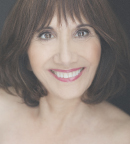I’ve always had dense breasts and avoided doing breast self-exams because I couldn’t tell if the lumpiness I was feeling was something serious or merely normal fibrous tissue. Instead I relied on my yearly mammogram to spot any early signs of cancer. Four years ago, I was once again relieved to learn that my mammogram test was negative for cancer. However, I received a letter from my physician informing me that the report indicated I had dense breast tissue and that I should consider an ultrasound for additional breast evaluation. I had an ultrasound, and it found a very small mass in my left breast, which was completely missed by mammography.
Opted for Contralateral Prophylactic Mastectomy
I was lucky. The pathology report from my tissue biopsy showed my cancer was stage I, invasive ductal carcinoma. My surgeon recommended a lumpectomy followed by radiation therapy, but from the time of my diagnosis, my gut feeling was I should have a contralateral prophylactic mastectomy; and the feeling I should be more aggressive in getting rid of this cancer stayed with me. After all, the malignancy had been missed in my mammogram, and I didn’t want to take any chances there was more cancer hidden in my breasts and undetected by the ultrasound or the cancer would recur.
Although the cancer in my left breast was small and contained, and there were no signs of cancer in my right breast, I asked for a contralateral prophylactic mastectomy. Because I have an Ashkenazi Jewish ancestry, which puts me at higher risk for the BRCA mutation, I had a genetic test to screen for the mutation. With two young adult daughters, I wasn’t just concerned about my future cancer risk factors, but theirs as well, and I wanted to make sure we were doing everything we could to reduce that risk.
Making Difficult Choices
The genetic screening showed that I am, in fact, BRCA2-positive, and that knowledge reinforced my decision to pursue more aggressive treatment for my breast cancer with a contralateral breast mastectomy and reconstruction. I’ve since had a bilateral salpingo-oophorectomy, because of my increased risk of ovarian cancer, and I’m being closely monitored for two other cancers I’m at higher risk of developing: pancreatic cancer and melanoma.

I am fortunate to have a medical team that listens to my concerns and includes me in all decisions relevant to my care, but I know not every survivor has this experience.— Sherri Rosenthal
Tweet this quote
My main concern is for my daughters’ well-being. My younger daughter, at age 27, underwent a contralateral prophylactic mastectomy after a mammogram found a large mass in her left breast. Although the mass was benign, the constant anxiety that the next lump could be cancer was so debilitating, she decided to have the surgery immediately. She is now determining when to schedule an oophorectomy.
My older daughter, already a thyroid cancer survivor, is under increased surveillance for breast and ovarian cancers and has not made any decisions yet about whether to have her breasts and ovaries removed. These are not easy choices for younger women, who are caught between wanting to protect their future against a deadly disease and not giving up their chance to have children.
Becoming a Voice for Others
Having been an active participant in my parents’ end-of-life health-care decisions, I knew how to advocate for my own best medical care when I was diagnosed with breast cancer, and I credit my determination to pursue aggressive treatment and genetic testing with saving my life. I am fortunate to have a medical team that listens to my concerns and includes me in all decisions relevant to my care, but I know not every survivor has this experience.
Since my diagnosis, I’ve become involved in a number of breast cancer survivor support groups, and I frequently hear from women who are hesitant to talk to their oncologists about side effects they are experiencing from their treatment, especially the aromatase inhibitors, because they don’t want their doctor to be disappointed or angry with them. I’m happy to be a sounding board for these women, and I encourage them to pay attention to their own gut feelings about the care they are receiving and speak up if their oncologist or another member of their medical team is not validating their concerns or fears and offering solutions. After all, we are the best judges of our bodies.
Living Fully
Cancer has changed me, but the change has been positive. I’ve found a new purpose in my life through my advocacy work, and I get a lot of satisfaction in knowing that I’m helping other women find empowerment and strength in their cancer experience. I didn’t wish to have cancer, but my life has become enhanced because of it. ■
Ms. Rosenthal lives in Westlake Village, California.
Editor’s Note: Columns that appear in the Patient’s Corner are based solely on information The ASCO Post received from patients and should be considered anecdotal.

